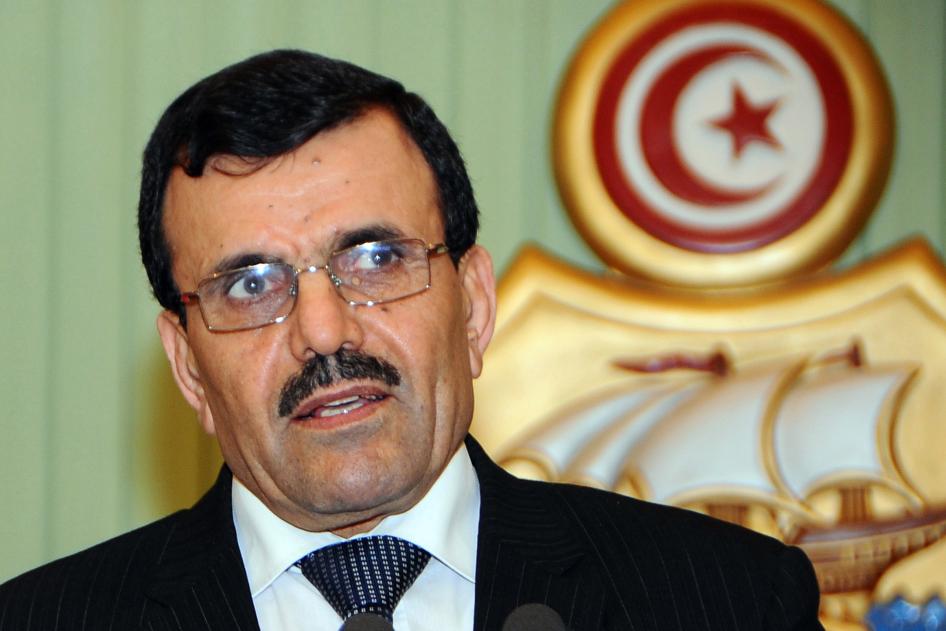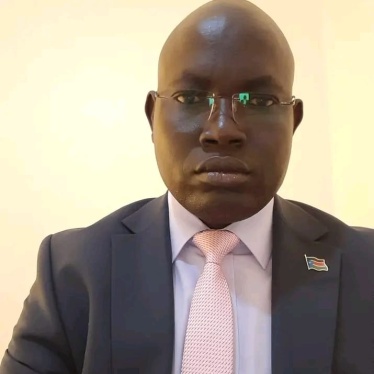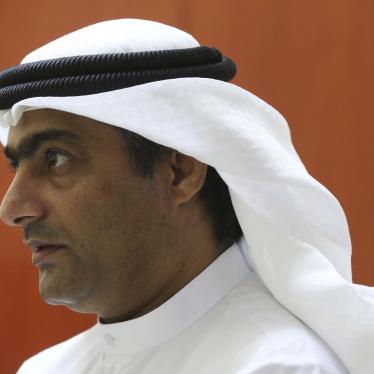Some coups and power grabs start with the arrest of the leader of the political opposition. In Tunisia, it took almost two years for President Kais Saied to jail Rached Ghannouchi, the longtime president of Ennahda party and former parliamentary speaker. Since July 2021, when Saied arrogated to himself emergency powers, suspended parliament, and began ruling by decree, his assault on human rights has been a steady drip, drip rather than a massive show of force on day one.
When Saied had Ghannouchi arrested on April 18 on flimsy charges of inciting violence, it was not only to eliminate a political foe. Faced with growing unease at his inability to improve Tunisia’s ailing economy, Saied was stoking his supporters’ antipathy toward Ennahda, both among those who blame the party for its record while in government and those who dislike the party in principle because they suspect it of harboring an extremist Islamist agenda despite its professed adherence to democracy and pluralism.
Ghannouchi has been the lightning rod for these two lines of criticism. But he is only one of approximately a dozen current and former Ennahda figures jailed since December on politically motivated charges, along with several critics of Saied from other political movements.
After Ghannouchi, the best-known of the jailed Ennahda figures is Ali Laarayedh. The 67-year-old former interior and prime minister seems to be Exhibit A in Saied’s effort to shore up his base by demonizing those who preceded him in governing the country.
Ghannouchi has not known prison since the 1980s, having fled into exile for more than two decades before returning to Tunisia in early 2011. By contrast, Laarayedh’s relation with Tunisian prisons has a long pedigree, one that tells the story of the ups and—mainly—the downs of human rights in Tunisia, from a police state to the Arab Spring’s relative success story to the current slide back into autocracy.
Born months before his country became independent in 1956, Laarayedh has served prison time under three presidents. Each time, the charges have been political and based on flimsy or dubious evidence.
In 1981, Laarayedh—a maritime engineer by training—founded with Ghannouchi and others the Islamic Tendency Movement (MTI), an unrecognized political party. Laarayedh was among 90 MTI members tried by State Security Court in 1987 for sedition. Two of his co-defendants who, like Laarayedh, got the death penalty were promptly executed, prompting fears of a backlash against Tunisia’s first president, Habib Bourguiba, who had ruled with an iron fist for three decades.
Partly in response, in November 1987, Interior Minister Zine el-Abidine Ben Ali staged a “medical coup” against 84-year-old Bourguiba and promptly commuted the death sentences against Laarayedh and his co-defendants, before pardoning them in 1988 and 1989.
Ben Ali’s tolerance of the country’s leading Islamist movement, which changed its name from the MTI to Ennahda (Renaissance), proved short-lived. Following scattered incidents of Islamist violence, Ben Ali outlawed the group and began rounding up hundreds, mostly on charges of membership in an illegal organization and other nonviolent offenses. Laarayedh, as the movement’s spokesperson, was detained more than once before military courts convicted him and 264 co-defendants in 1992 in a pair of mass trials—tainted by coerced confessions and due-process violations—on charges of plotting to overthrow the state. Of those co-defendants, 46 men were sentenced to life terms.
Laarayedh got 15 years and ended up serving 14. Among the thousands of party members who filled Ben Ali’s prisons, Laarayedh served the most time in solitary confinement, spending more than 11 years in isolation across seven prisons.
Laarayedh described the experience to me in 2004, shortly after his release: “In isolation, the only person you can speak to is the guard. But from time to time, the prison staff would decide not to address a single word to you, sometimes for a few hours, sometimes for an entire week. … It makes you despondent, ready to do something desperate, toward the guard, or toward yourself, just to prove you exist.”
Like many ex-prisoners, Laarayedh remained under surveillance but resumed his political activities within Ennahda, heading its political bureau. In 2005, the party leadership joined a coalition with several non-Islamist parties to demand basic democratic rights.
In December 2010, a popular revolt, set off by the self-immolation of the persecuted peddler Mohamed Bouazizi, spread across Tunisia, leading to Ben Ali’s ouster and igniting protests across the region. One week after Ben Ali fled the country, the interim government freed political prisoners en masse. Two months later, authorities reversed Ben Ali’s ban on Ennahda and legalized it as a political party.
In October 2011, Tunisia held its first free and fair election, giving Ennahda a plurality in the Constituent Assembly, enabling it to govern in coalition with two secular parties in the so-called “Troika.” In December 2011, Laarayedh became interior minister, moving into the imposing office upstairs from the basement cells where he and his Ennahda colleagues had been tortured decades earlier. He moved on to serve nearly one year as prime minister.
During those post-revolutionary years, Tunisians could speak out and demonstrate without fear of arrest. They had much to protest. Tunisia was not spared the rise of the Islamic State and its affiliates globally. The 2013assassinations in Tunis of two leftist politicians, which were widely blamed on Islamist extremists and condemned by Ennahda, led to massive demonstrations demanding the resignation of the government, which had also failed to reverse the economy’s downward spiral.
The Laarayedh government—the last one led by Ennahda—stepped down in January 2014 in favor of a caretaker government, just before parliament adopted Tunisia’s first post-revolution constitution.
Successor governments also struggled with the scourge of extremist armed attacks, including two in 2015 claimed by the Islamic State that killed 60 people at a museum and a beach resort, hobbling the country’s critical tourist industry.
Those governments also struggled to rekindle the economy, fueling public discontent that contributed to the resounding victory of Saied, a political outsider, as president in the 2019 general elections.
Laarayedh stepped down as a member of parliament after those elections but remained a vice president of Ennahda. On Dec. 9, 2021, a fire engulfed Ennahda’s national headquarters in Tunis after a young member immolated himself; Laarayedh jumped from a second-story window, fracturing his pelvis and femur.
Tunisia’s economic outlook has only worsened during Saied’s early tenure, buffeted by the COVID-19 pandemic and the government’s botched response to it. On July 25, 2021, Saied suspended parliament and began an ongoing process of consolidating power over state institutions that could stand in his way. He has eviscerated the independence of the judiciary and the election oversight body and implemented a new constitution centralizing power under the president.
Under Saied, a number of Ennahda leaders have been jailed. These include Noureddine Bhiri, detained in December 2021 on accusations that when he was a government minister between 2011 and 2013, he facilitated travel documents for Tunisians to join the Islamic State and other armed groups fighting in Syria, Iraq, and elsewhere. At the time, young Tunisians were leaving by the thousands to join the group. The authorities released Bhiri two months later without charging him, only to rearrest him in February 2023; he has yet to be charged.
Ghannouchi, since his arrest for incitement, has been shuttled from prison to an anti-terrorism unit of the National Guard for questioning. The day after his arrest, authorities closed the national headquarters of Ennahda and banned its members from holding meetings, bringing the country one step closer to the Ben Ali era, when the party was formally banned, and thousands were sent to prison merely for the “crime” of membership.
As for Laarayedh, a counterterrorism judge summoned him for questioning on Dec. 19, 2022, and ordered him detained, two days after an embarrassing 11percent of voters showed up to elect a chamber of deputies with reduced powers under Saied’s new constitution.
Laarayedh has now been in Mornaguia prison for four months without seeing a judge or being formally charged. His detention warrant makes clear that the accusations against him stem from policy decisions he made while in government, which allegedly failed to effectively counter extremism and terrorism “in the necessary way, thus contributing to … the increase in the departure of young people to hotbeds of tension for jihad.”
While Laarayedh as a government minister did not eradicate terrorism, no evidence has emerged to date to link him to any crimes. It is no accident that alongside the Ennahda-related figures currently in custody, most of the more secular-leaning political figures currently in detention advocate including Ennahda in a united opposition front. In February, Saied denounced them as “terrorists.”
From death row under Tunisia’s first president to 11 years in solitary confinement under its second, Laarayedh is back in prison under the country’s latest authoritarian president.
Whatever the shortcomings of Laarayedh’s tenure in government, one thing is clear: When he was interior and prime minister, Tunisians enjoyed more freedom to speak out than under any of the presidents who imprisoned him.









